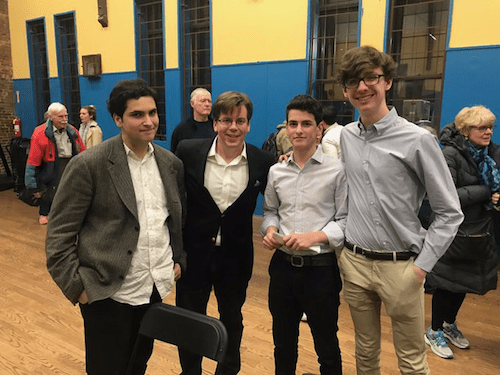For Lisette Bamenga, getting ready to vote in the 2019 local elections was an absolute nightmare. After her release from prison, she attempted to register multiple times, only to find that her registration request was automatically cancelled. She tried sending her registration form along with a copy of her certificate of relief, but even that didn’t work. She ended up having to call the Governor’s office directly – and even then, she was barely able to register in time for the election in November.
“Only because of that, because of my footwork, my persistence, was I able to vote,” said Bamenga. “This is not fair for the average Joe who’s just coming home from parole, who can’t do all of this footwork, who will give up after the first cancellation.”
Bamenga told her story last night at a Zoom conference, about a new bill that, if passed, will guarantee that no returning citizen will have to struggle like she did.
Last night, Assemblymember Daniel O’Donnell (D-Manhattan Valley, Morningside Heights) hosted a virtual meeting about a new bill he’s sponsoring, which would guarantee the right to vote for returning citizens. The meeting also featured Assembly Elections Committee Chair Latrice Walker (D-Brooklyn), Anthony Dixon of the Parole Preparation Project, and Sean Morales-Doyle, deputy director in the Democracy Program at the Brennan Center for Justice.
Despite New York’s progressive reputation, the state is actually behind the curve on this issue. Currently, 19 states and Washington D.C. allow prisoners on parole to vote; New York is not one of them. Two years ago, Governor Andrew Cuomo (D) made an effort to address the issue by using the power of his pardon to secure voting rights for returning citizens. Latrice Walker commended him for the gesture, but maintained that it wasn’t enough.
“25,000 people have returned to the 55th Assembly District between 2016 and 2020,” said Walker. “Those are 25,000 people that I have the pleasure and honor to represent in the New York State Assembly. However, their voices are being muted every day by not being able to have the full restoration of their voting rights. We know the Governor has done an Executive Order which will allow a pardon for individuals who request them. But it still does not go far enough.”
Anthony Dixon said that the issue is part of a wider narrative, bringing up the United States’ long history of disenfranchising people – particularly people of color – for frivolous reasons. And New York, he said, is in no way exempt from that narrative.
“New Yorkers cannot denounce the existence of non-living Confederate statues on one hand, and allow Jim Crow to breathe in our New York State Constitution on the other hand,” said Dixon. “It is inexcusable, disgraceful and reprehensible.”
Assembly Bill A4448 would codify the right to vote for every eligible citizen who is not currently serving a prison sentence for a felony. It would also require the courts to immediately inform returning citizens upon their release that they can vote again. The second part, said Sean Morales-Doyle, is particularly important, as a preventative measure against what he called “de facto disenfranchisement”. The term refers to when citizens aren’t technically disallowed from voting, but the state allows them to believe that they are.
“This bill goes further than just giving people the right to vote,” said Morales-Doyle. “It gives us the tools to begin the process of engaging those folks, getting them involved in the political process, and really seeing the benefits of the law.”
Daniel O’Donnell sees the bill as another step in his continuous quest to reform the State’s criminal justice system. Last year, he successfully sponsored legislation to repeal New York Civil Rights Law Section 50-A, which restricted the public release of officers’ personnel records. He expressed pride in the fact that he was able to get the public on board with repealing what was previously a little-known part of the State penal code, and he hopes to repeat his success this year with A4448.
“I remain committed to fixing the problems within our criminal justice system,” he said. “Last year I was fortunate to repeal 50-A, which was a fifty-year mistake that we finally got to undo. I had a lot of help from outside; how the Jonas Brothers learned to tweet that we should repeal 50-A, I don’t know. I didn’t ask them, but I’ll take it, one way or the other. There’s a path, and the people who believe in or are committed to justice support that path. I intend to work very hard to make this happen.”









